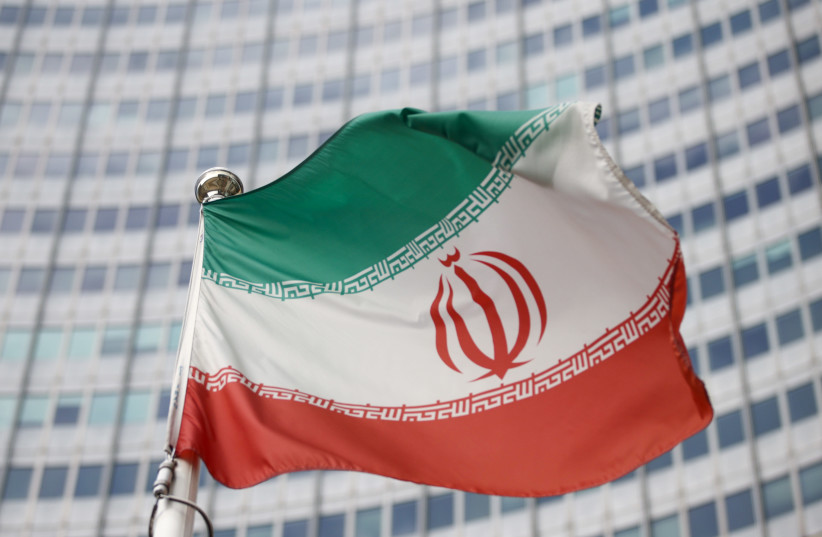Israel’s potential attack on Iran draws nearer due to a sequence of recently disclosed advancements. These advancements stem from the International Atomic Energy Agency’s (IAEA) decisions concerning Iran, the recent actions taken by the Biden administration and Tehran’s advancements in its military nuclear program.
The International Atomic Energy Agency (IAEA) recently concluded two investigations related to Iran’s nuclear program. These investigations focused on the discovery of highly enriched uranium remains at the Fordow nuclear facility and another facility in Marivan.
The closure of these major cases against Iran strengthens the possibility of officially resuming nuclear talks and significantly increases the chances of reaching an agreement. The open investigations by the IAEA were a central point of discussion between Iran and world powers during the negotiations for the renewal of the 2015 Joint Comprehensive Plan of Action nuclear agreement last year. In September, Iranian President Ebrahim Raisi emphasized that any framework for restoring the agreement must ensure the closure of these investigations. A Western diplomat confirmed that this demand has resurfaced in Tehran’s current stance.
Recent developments indicate that Iran and the US have been engaging in diplomatic talks, both directly and indirectly, exploring the possibility of an unofficial interim “less for less” agreement. This approach recognizes the challenges of reaching a comprehensive official agreement in the current global climate, taking into account Iran’s military support to Russia in Ukraine, aggression against US forces in Syria, and hostile activities in the Persian Gulf, such as seizing foreign oil tankers.
The proposed temporary agreement would involve freezing Iran’s nuclear program while partially easing economic sanctions, including releasing Iranian funds held by various countries. The agreement would overlook Iran’s nuclear violations and allow it to maintain a highly enriched program with enough uranium for multiple nuclear bombs. It could also provide Iran with significant funds to enhance its military capabilities and support its aggressive and destabilizing behavior in the Middle East and beyond.

Indications of negotiations for an interim agreement have emerged, with US officials visiting Oman and engaging in discussions with Iranian counterparts. Oman, which played a role in the secret talks leading to the 2015 JCPOA nuclear agreement, has been involved in mediating recent breakthrough discussions between Iran and Saudi Arabia.
There have also been discussions within the Biden administration, as well as with Israeli and European partners, regarding a potential interim agreement with Iran. However, such an agreement poses dangers and legitimizes Iran’s regime while projecting weakness on the part of the US. Iran’s aggressive actions – including supplying drones for Russia’s war in Ukraine and supporting terrorism in the Middle East as well as its repression of protesters – highlight the concerning behavior of the Ayatollah regime.
Iran's nuclear progress is a growing concern
Iran’s progress in its nuclear program is a growing concern, with violations of the nuclear agreement and a significant increase in its enriched uranium stockpile. The accumulation of uranium enriched up to 60% has raised alarm, as it could potentially produce two nuclear bombs. Although Iran has not reached the military-grade enrichment level, its advancements bring it closer to becoming a nuclear threshold state.
It is important to note that uranium enrichment is only one aspect of nuclear weapons development, and other components must be considered. Israel’s focus has shifted to Iran’s ability to operationalize a military nuclear capability, which may trigger preemptive action. Estimates suggest that Iran could produce nuclear weapons within one and a half to two years but covert development could shorten this time frame.
The recent developments have significantly advanced Iran’s progress towards acquiring nuclear weapons, necessitating Israel to enhance its readiness for a potential attack on Iran. It is probable that the Biden administration will not only refrain from taking decisive action against Iran but also seek to obstruct any Israeli military action while aiming to achieve a foreign relations milestone, such as an agreement with Iran, by the time of the US presidential elections in November 2024.
In light of this reality, Israel must be prepared for the possibility of acting alone in addressing the Iranian nuclear threat. Moreover, Israel should anticipate a scenario in which the Biden administration refuses to endorse an Israeli attack, potentially leading to the withholding of American aid across various strategic, operational, political, and diplomatic dimensions, including military supplies, intelligence sharing, regional cooperation, UN Security Council vetoes, and international support.
The writer has a PhD in political studies. He is a military strategy and national security expert, and a researcher at the Jerusalem Institute for Strategy and Security (JISS) and at the Israel Defense and Security Forum (Habithonistim).
